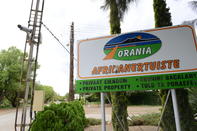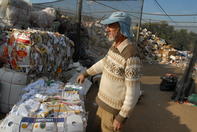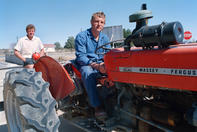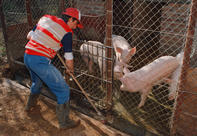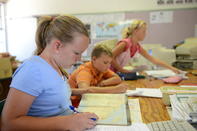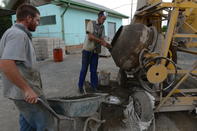Municipal System
Orania is privately owned by Vluytjeskraal Aandeleblok company (VAB), run by its own board of directors. Ownership of plots and houses is in the form of shares in the company, and the shareholders have the power to elect the board of directors.
The board of directors elects a chairperson, who serves as the town's mayor, and an executive officer who is responsible for the daily administration of the town. Other members of the board are given responsibility for community matters such as safety, planning and community services.
Orania is responsible for its own services such as water, electricity, sewage, rubbish collection and road maintenance. The town residents pay rates and VAB provides the services. Utility companies like Eskom and Telkom provide services to VAB, which then splits the costs and charges the end-users.
Orania Verteenwoordige Raad is tasked with running Orania’s political sphere and does any negotiations on provincial and national levels on behalf of the town. The Council is elected by all residents, including those who own no shares in the company. The town’s municipal structure is based on the Local Government Transition Act of 1993. Orania receives no fiscal contributions from the state or provincial government.
The town has neither a prison nor a police station, and minor crimes such as petty theft are handled internally. There is a neighbourhood watch patrol, and the town council prefers to use mediation and arbitration procedures to deal with any security matters.
Economy and Agriculture
Orania residents from all levels of society perform their own manual labour, with many employed in unskilled positions such as gardening and waste collection. The construction industry in town allows for residents to receive low-cost housing on a larger scale.
In 2001, the Orania Chamber of Commerce was established. The local cooperative bank, Orania Spaar en Kredietkoöperatief, is registered with the South African Reserve Bank. In 2004, Orania launched its own monetary system called the Ora.
Agriculture is an important element of Orania’s economy. The town is home to one of South Africa’s largest pecan nut plantations, and other agricultural endeavours include dairy farming, pig farming and grape growing. A pumping station on the Orange River, financed and built by the town's residents, provides water for agricultural use.
Education and Religion
All educational activities in town are supervised by Orania Koördinerende Onderwysraad. Orania’s schools offer Afrikaans as the main language of instruction, and follows the IEB curriculum. The CVO Skool Orania (Christian People's Education) offer a more conservative approach to schooling, which includes Christian tenets as a vital part of the education.
The Volkskool uses a self-driven teaching system, which is unorthodox by South African standards. The school adopted a computer-based learning system that allowed students of different levels to taught by a single teacher. There is also a vocational training school, offering courses in technical subjects such as welding, building, bricklaying, metalworking and engineering.
Orania is a deeply religious community, with more than six churches in town. The Afrikaans Protestant Church was established in 1991, while the Dutch Reformed Church was built in 1999.
